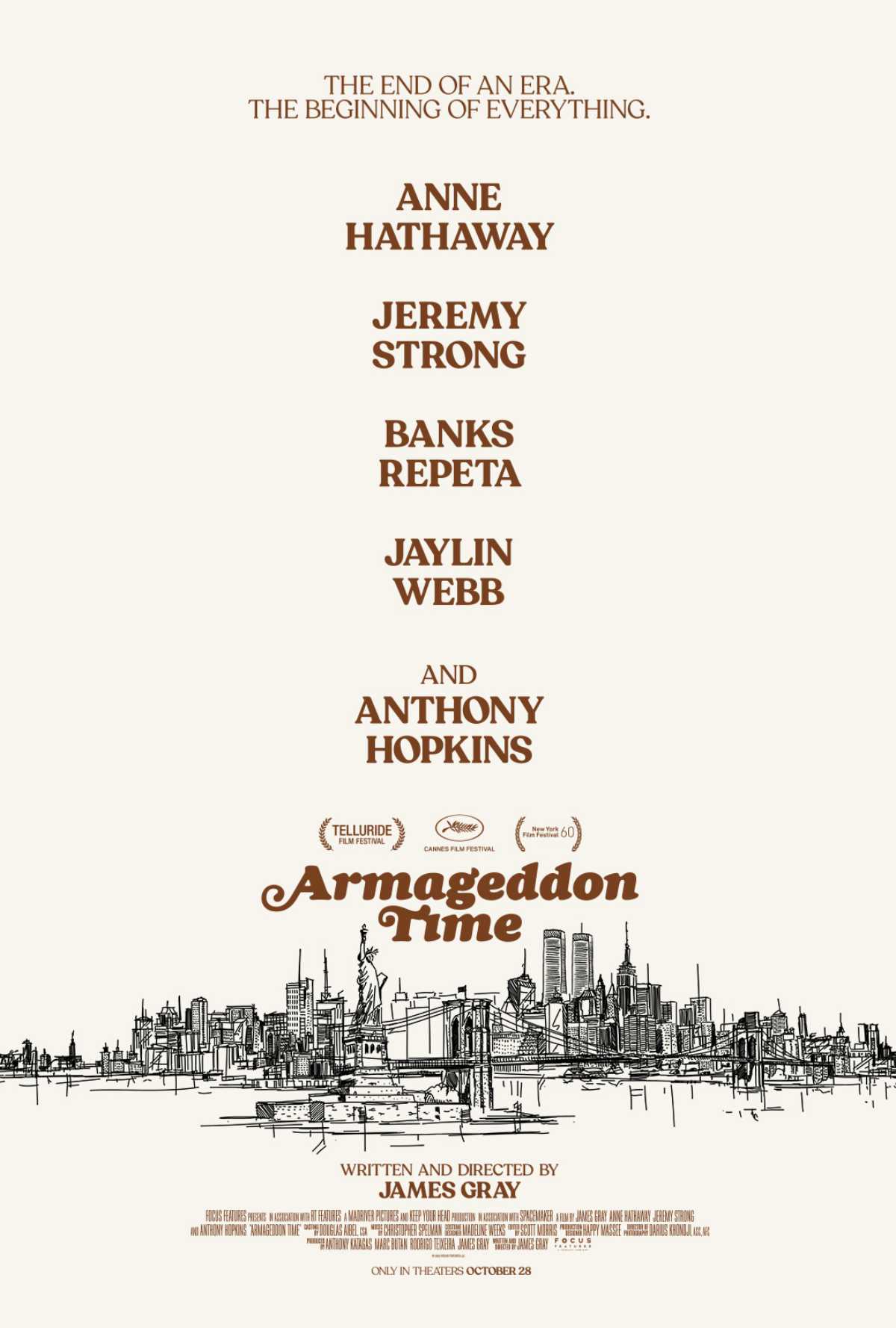Armageddon Time Review
James Gray‘s coming-of-age film, Armageddon Time, is set in 1980. Most audiences would likely anticipate a nostalgic trip back in time, full of musical pop culture needle drops, lots of magic hour horizon shots, and big emotional Oscar bait moments with actors like Anthony Hopkins, Jeremy Strong, or Anne Hathaway giving heartfelt soliloquies as the camera slowly closes in on their faces.
But Gray is wholly uninterested in looking back with rose-tinted glasses. He wants as much verisimilitude as possible, a moral clarity that cuts through any treacle and false sentiment. He wants to show us, in short, the truth.
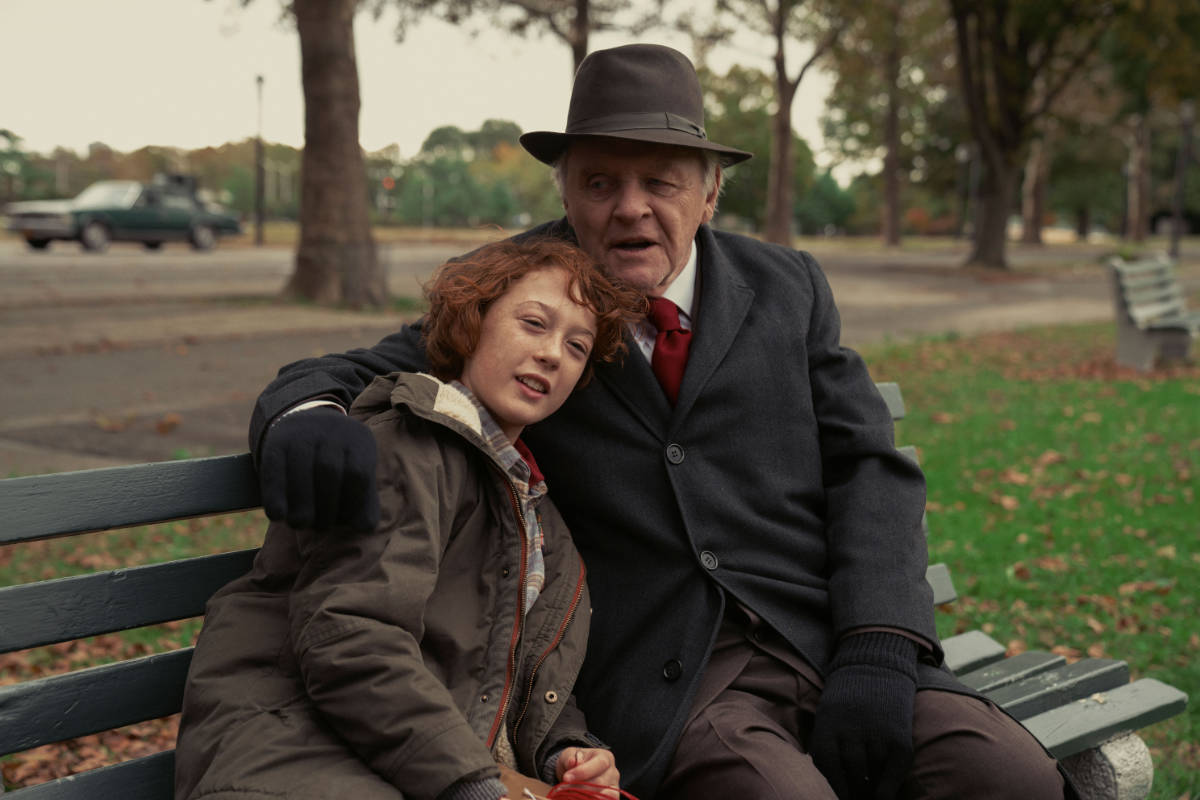
This is an autobiographical tale, set in New York City, of Gray’s childhood. Paul Graff (Banks Repeta) is a young Jewish boy trying to steer through the tumultuous times, his school, his family, and his friendship with a Black boy, Johnny (Jaylin Webb). Paul is naturally rebellious, but his mother Esther (Anne Hathaway), his father Irving (Jeremy Strong), and his grandfather Aaron (Anthony Hopkins) mostly let him get away with it.
Paul is the younger of two brothers, artistically bent, and not always the focus of the family’s attentions. Paul and Johnny tie their teacher, Mr. Turkeltaub (Andrew Polk) in knots, but it’s Johnny that takes the bulk of Mr. Turkeltaub’s ire, and Paul is too young and too oblivious to why. After getting caught smoking weed in the bathroom, Esther and Irving decide to pull Paul out of public school and into private school, and away from his friend Johnny.
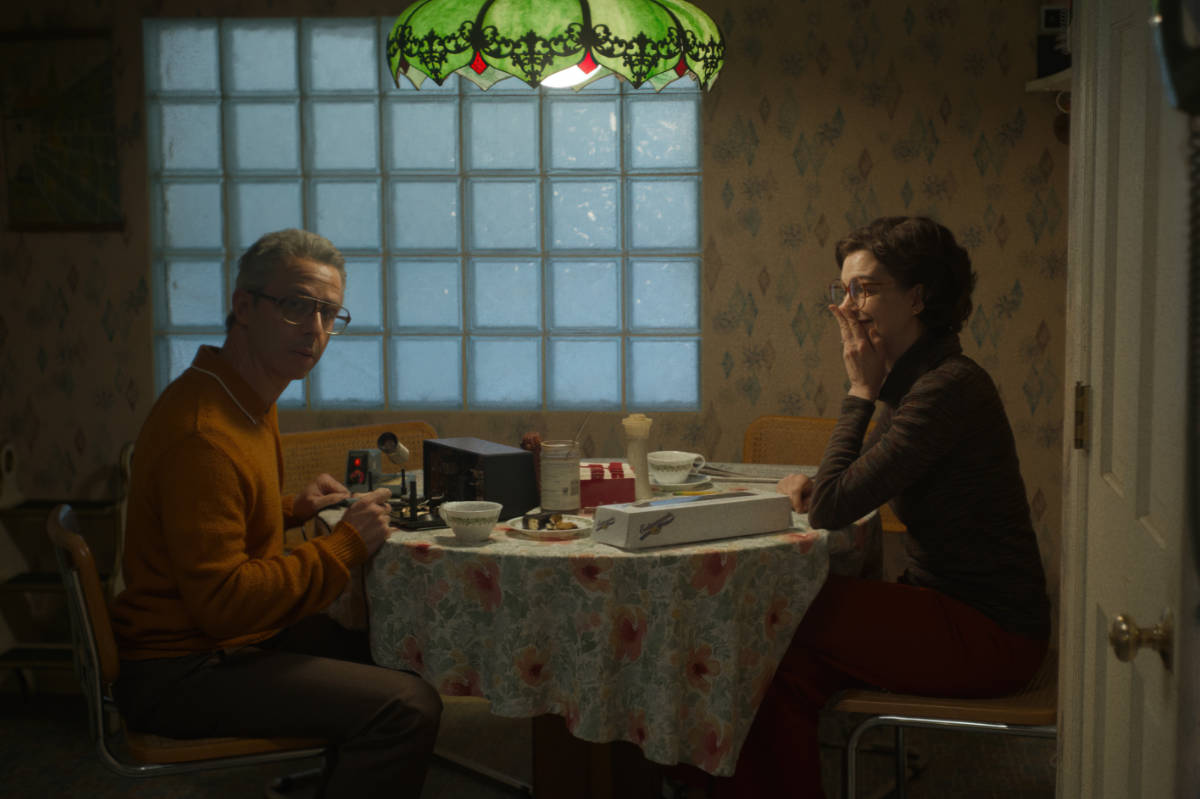
Armageddon Time is not an easy movie. Gray refuses to sugarcoat the times, and he doesn’t give us emotional cues, like other movies set in this time period would. We don’t get a soundtrack full of pop culture moments – although the Sugar Hill Gang’s “Rapper’s Delight” plays an integral part of the story, Gray doesn’t use the song in a celebratory way. Instead, it is a reminder of the societal oppression of the times.
When people look fondly back on those years, they conveniently forget that this wasn’t such a great time for minorities, whether they were Jewish or Black, and both Paul and Johnny have to navigate through the racial and social opportunities (or lack of them) that are offered. Even kindly Aaron, Paul’s grandfather, knows the game is rigged, and while he wants Paul to explore his interests, he also knows that this world, in time, will likely grind those interests away.
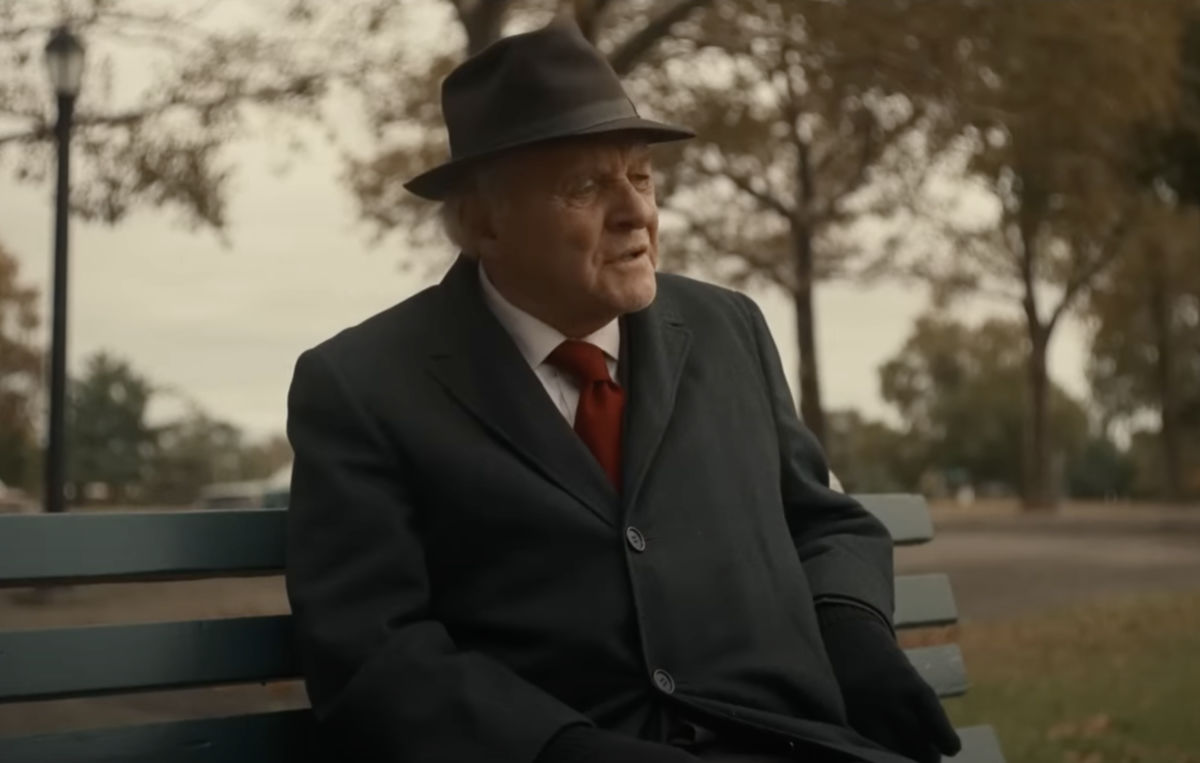
Gray also doesn’t shy away from the abuse of other kids, or even of Paul’s parents. There are things we wish were a part of childhood, and then there are things that just are, and the fact is this world, the world of Paul and Johnny’s childhood, is geared to wound and scar. The idea was that those wounds and scars would “toughen up” the kids to face the harsh realities of life, but those abuses were wildly disproportionate, and there may be quite a few people angry about the direction Armageddon Time goes.
To that I can only answer – that’s what happened back then. We fervently wish it wasn’t so, but we know the truth. It’s not kind, or easy – it just is. People are entitled to feel how they want about the story of Paul and Johnny, but Gray, who obviously feels guilty and ashamed, wants us to decide for ourselves. In its way, Armageddon Time is the flip side of a film like Spike Lee’s Do the Right Thing – like Lee, Gray leaves the moral judgments to us.
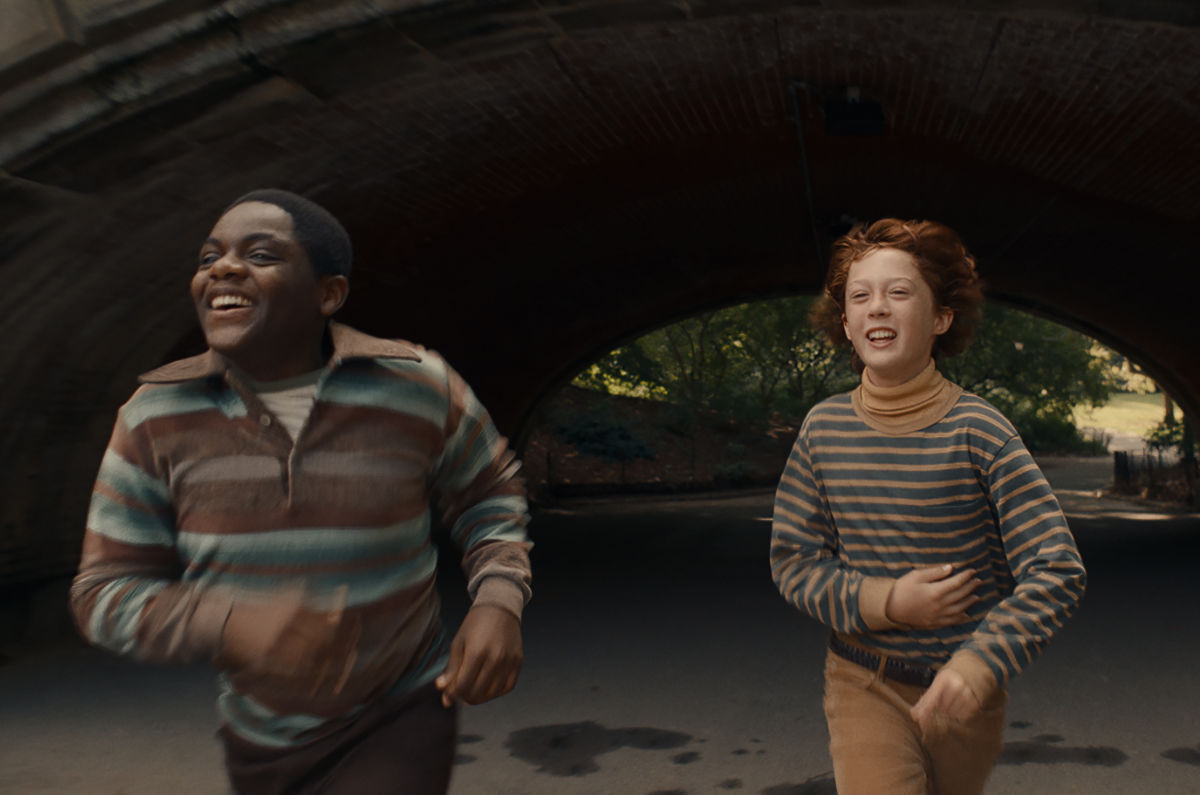
All the performances of Armageddon Time are strong. Banks Repeta doesn’t play Paul like an innocent child – there are times when Paul is quite unlikable, and Repeta isn’t afraid to show ups his many nuances and flaws. Jaylin Webb’s performance is heartbreaking – he just wants to be an ordinary kid with ordinary dreams, but the world closes in on him with a pitiless cruelty, and we slowly see the shine come off his eyes. It’s difficult, powerful work.
I especially must give props to the work of Anne Hathaway, Jeremy Strong, and Anthony Hopkins here – they are not given grand actorly gestures, and instead try to live the lives as they read on the page. Hopkins, especially, gives Aaron a complexity and an awareness that in a lesser actor’s hands would come across as sentimental. Aaron loves his family, and we can see that in his eyes. But he also has seen the horrors of what humanity can do, and he will protect his family from that if he can, and that requires him to make moral choices that seem to go against all the platitudes that he tells Paul.
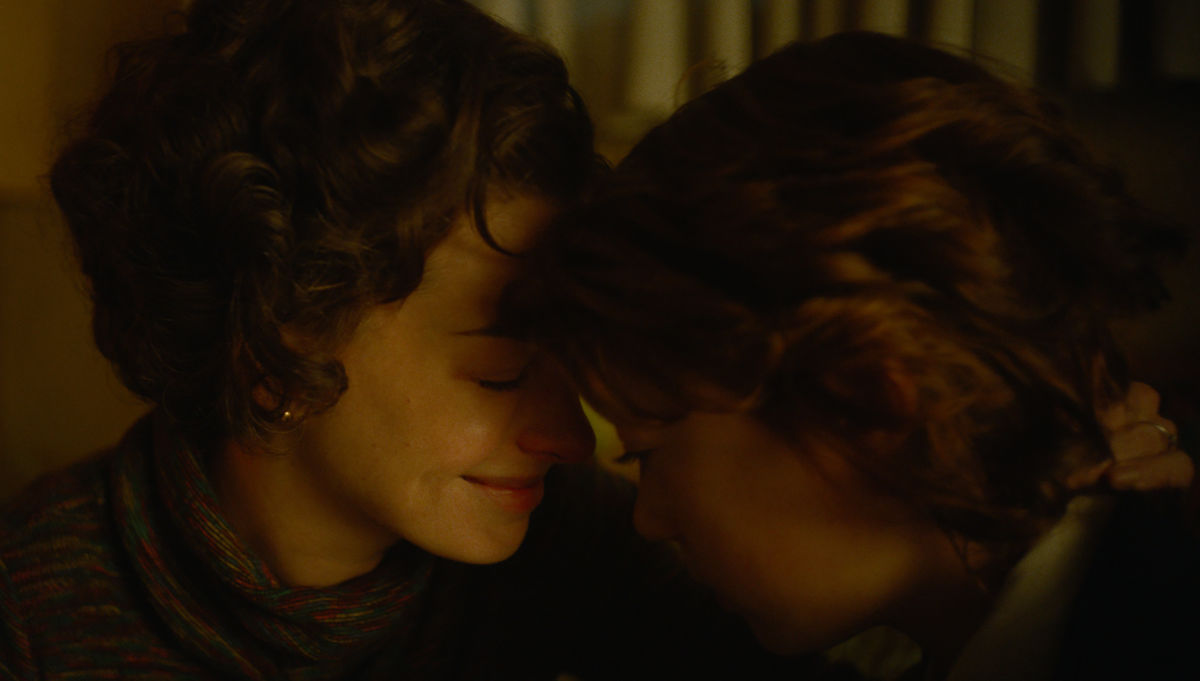
The few moments of grace we are given in Armageddon Time feel more real as a result, because we know those moments are fleeting. Cinematographer Darius Khondji knows when to pierce the darkness with a righteous light – his work often reminded me of the way Gordon Willis shot Francis Ford Coppola’s films, in that the shadows aren’t hiding anything because everything is living inside them. We do not hide because we are afraid – we hide because we do not want to be seen.
Armageddon Time wrecked me. There’s a line that Samuel L. Jackson says in Pulp Fiction about how the world is cruel, and how we can be beacons within that world. “I’d like that. But that sh*t ain’t the truth.” We can feel the machinery of malice inside the world of Armageddon Time, and we desperately want to see someone, anyone, throw a wrench into its cogs and wheels. But we also know that only the bravest of people can do that, and that most people are not brave.
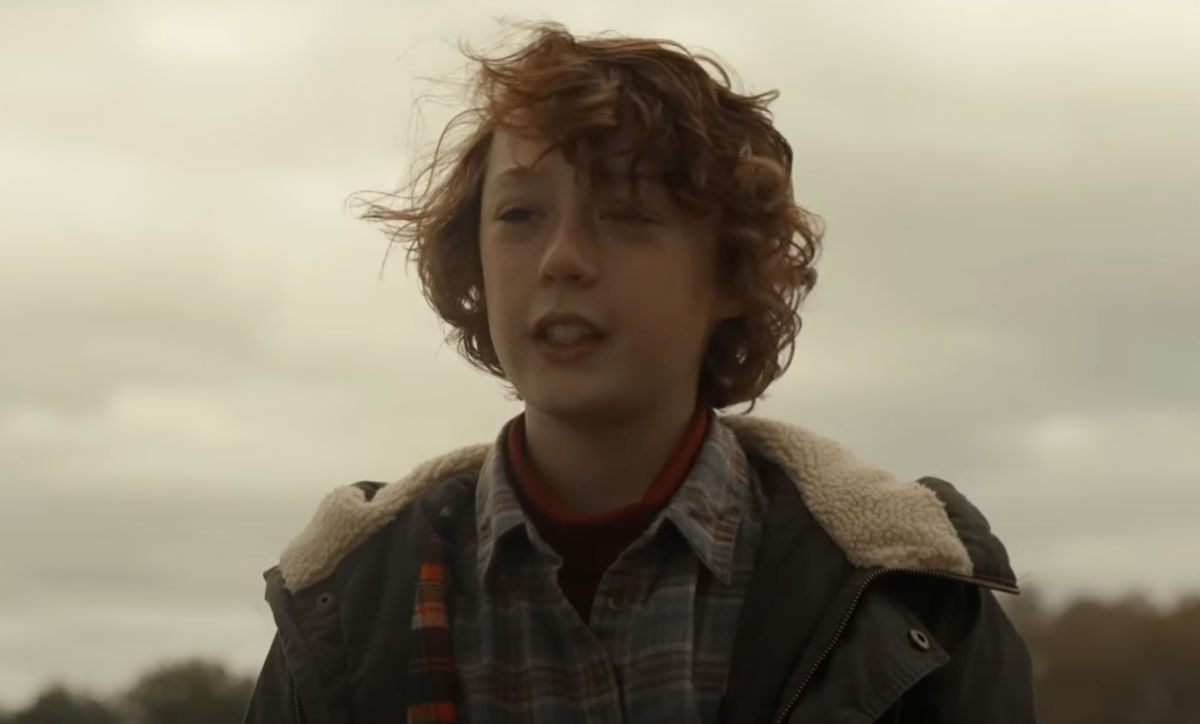
Bravery can come by inches, or in grand gestures. But not everyone can do it. As we watch Paul reject the life that has been carefully laid out for him, we feel complicit in our own lives, and aware that we are tested every moment. Armageddon Time is a great film.
ARMAGEDDON TIME REVIEW SCORE: 9 OUT OF 10
Focus Features will release the film in select theaters on October 28 and everywhere on November 4. The movie is rated R for language and some drug use involving minors.
